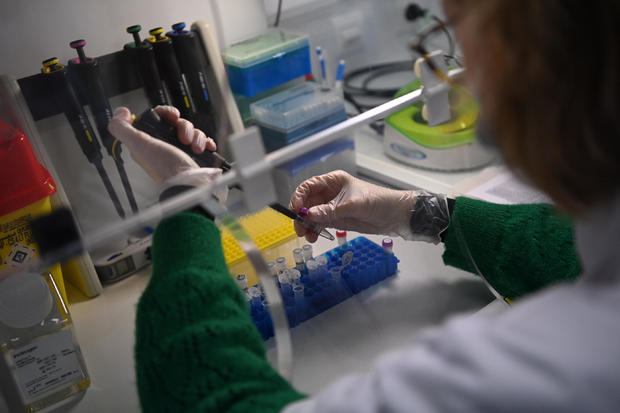"IHU" coronavirus variant "on our radar" but not a threat, World Health Organization says
Paris — New coronavirus variants are detected every week. Most of them pop up and then quickly disappear, others persist quietly but never become widespread, and just a few rise to the ranks of "Variants of Concern," as designated by the World Health Organization.
So, it's unusual that a variant tentatively identified in France more than a month ago, which failed to spread beyond a small initial cluster of cases, should be seizing so many headlines this week.
Perhaps it's because the researchers who looked into it decided last week to dub it "IHU" after the university hospital where it was identified, the IHU Méditerranée Infection, in Marseille, southeast France, which is led by the controversial scientist Dr. Didier Raoult, who made hydroxychloroquine a household name.
Social media users pounced on the potential homonym with "I hate you" — and the variant registered as B.1.640.2 suddenly garnered headlines. As the world fixates on new strains of the virus, the reports have been trending online this week.
The variant, which has 46 mutations and 36 deletions that make it genetically distinct from the original coronavirus discovered in China, was first identified in the Marseille region in November in a person who had recently returned from Cameroon in central Africa. Eleven more people, all linked to that traveler, were infected with what the IHU recorded as a new variant, as it tweeted on December 9.
That was the same week that the first case of the Omicron variant was officially identified in France. Omicron now accounts for half of all new coronavirus infections in France — fueling a surge that saw the country report a record 335,000 new daily cases on Wednesday. The "IHU" variant, on the other hand, has not been detected in anyone since the initial 12 people.
The World Health Organization this week downplayed concerns over the variant. Abdi Mahamud, a WHO incident manager on COVID, told a press briefing in Geneva on Tuesday that it "has been on our radar," but noted that it hadn't proved much of a threat.
The researchers who dubbed the variant "IHU" pre-published a research paper on December 29, saying it was "another example of the unpredictability of the emergence of SARS-CoV-2 variants, and of their introduction in a given geographical area from abroad."
They concluded, however, that it was "too early to speculate on virological, epidemiological or clinical features of this IHU variant."




